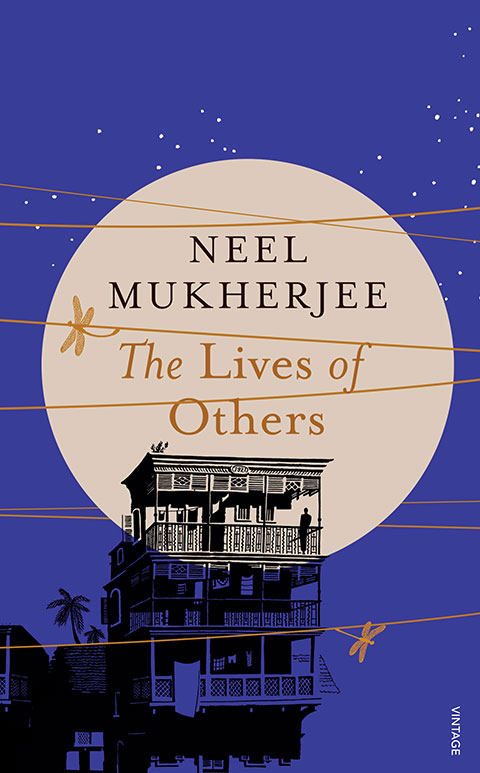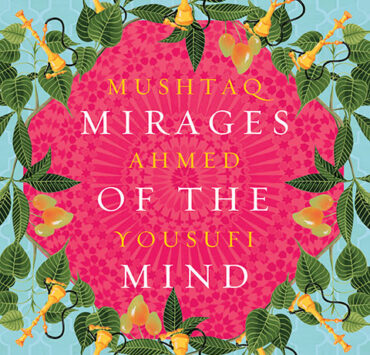The Lives of Others, Neel Mukherjee’s recently released second novel, begins with an epigraph by James Salter that frames the book’s essential query fittingly: “How can we imagine what our lives should be without the illumination of the lives of others?”
Even though the story, set in the late 1960s, focuses on Calcutta’s wealthy Ghosh family, Mukherjee begins with a disturbing account of an impoverished farmer and wage labourer, Nitai Das, as he struggles to feed his family. When the landlords in the village refuse to offer him any help, setting their guards upon his starving body, Das returns home and in a fit of rage and despair, murders his entire family, and finally commits suicide himself, putting an end to the tyranny of hunger.
 The Lives of Others by Neel Mukherjee (Purchase)
The Lives of Others by Neel Mukherjee (Purchase)Set in opposition to this is the lavish Ghosh household and the family’s many trivial internal conflicts. The patriarch, Prafullanath makes his fortune selling paper and eventually goes on to owning several paper mills across Bengal. His several sons, their wives, and his one daughter inherit his wealth and spend their lives squabbling about money, jewellery, power, property, and control.
In the midst of all this, Supratik, the eldest grandson of the family, suddenly disappears one day to join Maoist Naxalites in the villages in their struggle to redistribute land and resources. His letters from the countryside about the struggles of the impoverished, landless poor form the narrative counterpoint to the author’s descriptions about his family back home. We realise soon that Supratik comes to live in the same village that had seen the death of Nitai Das and his family at the beginning of the book.
Class conflict informs most aspects of The Lives of Others, whether it is within the household or without. The paper mills that brought such riches and glory to the Ghoshes soon turn to dust as a result of a workers’ strike that stretches on for years. The family’s refusal to negotiate with and understand the problems of the workers reflects a certain mistrust of and disdain for the lower classes that one also gets to see within the space of the home. Madan, the family’s servant and cook who started working for them when he was 10 years old, is accused of stealing a daughter-in-law’s jewellery at the age of 60 despite years of faithful service and love.
Mukherjee draws up his characters with much care and empathy. Even with the ones who are outrightly devilish, he manages to paint for the reader a picture of their deepest fears and vulnerabilities. Chhaya, Prafullanath’s spinster daughter, in whose veins venom seems to flow instead of blood, spares no one in her generous expulsions of vile and spiteful words. And yet, one feels sympathy for her, as the author takes care to establish how the family and the world at large have treated her unkindly because of her dark skin colour and squinting eyes. He portrays the character of Purba, the youngest daughter-in-law, the most delicately, for it is she who is most oppressed by the family, given her status as a widow. She is forced to live in a tiny room with her two children on a separate floor of the house, and is offered meagre quantities of food and clothing as some kind of punishment. The author does well to unveil the various ways in which familial institutions perpetuate gender and caste inequality in ways that are often invisible.
Following an interesting nonlinear narrative style, Mukherjee writes with subtlety and intelligence, never quite allowing any of his characters to assume a moral authority. While Supratik, as the Marxist revolutionary, obviously tends to ask tough questions of society, he too is not devoid of contradictions. While he fights for the rights of the poor in distant villages, at home, he has no qualms in stealing his aunt’s jewellery and framing the ageing and poor Madan as the thief. Supratik’s inability to fully understand and live the lives of the poor farmers he spends years with starts to slowly unravel his faith in the ideology he had felt so strongly about from a distance. After all, he is a boy who grows up knowing only the pain of paper cuts and not police brutality.
“How could he ever have imagined that ideology, revolution, the needs of others, abstraction, all these combined or individually, could have been weightier than the simple business of self-preservation, of the sheer physicality of pain?” he asks at last.
Given his revulsion of his bourgeois background, Supratik never talks about his beliefs to anyone in the family except his mother, with whom he speaks not to encourage introspection but to provoke and accuse of moral wrongdoing. He keeps his politics to himself, as a result of which he isn’t even able to alter the class and caste dynamics of his own home, let alone the outside world. His only legacy is a trick he discovers to derail trains from railway tracks, his unintended gift for future comrades.
[ISBN 9788184003796; Random House India]








